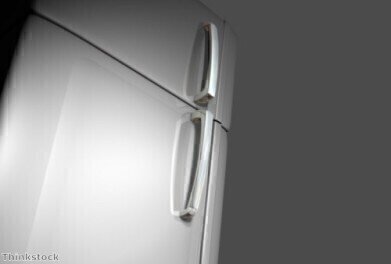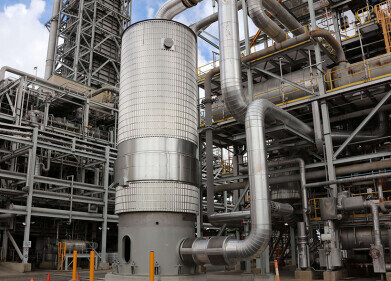-
 HFCs are found in refrigerators and could lead to climate change
HFCs are found in refrigerators and could lead to climate change
Air Clean Up
Emissions deal agreed on by China and the US
Jun 10 2013
China and the US have made a deal to reduce the effects of climate change by lowering the production of greenhouse gases. The countries' presidents, Barack Obama and Xi Jinping, will work together - and with other countries - to reduce hydrofluorocarbons (HFCs), which are found in items such as refrigerators, industrial machinery and air conditioner units; especially within developed countries.
HFCs have been used as an alternative to hydrochlorofluorocarbons (HCFCs) as HCFCs are known to cause damage to the ozone layer and started to be phased out following the 1987 Montreal Protocol. HFCs do not damage the ozone layer but they are very powerful greenhouse gases, which can lead to climate change. It has been estimated that continued use of HFCs could lead to the equivalent of 3.5 and 8.8 gigatonnes of carbon dioxide emissions by 2050.
A White House statement said: "The United States and China agreed to work together and with other countries through multilateral approaches that include using the expertise and institutions of the Montreal Protocol to phase down the production and consumption of HFCs".
It was estimated in the White House statement that the phasing down of HFC use throughout the world could reduce around 90 gigatonnes of carbon dioxide equivalent by 2050. This is around two years' worth of global greenhouse gas emissions.
The US, Mexico and Canada, for the last four years, have proposed an amendment to the Montreal protocol to include the phasing down of HCFs. The Montreal protocol was initially put into place as a global protocol to see the reduction of HCFCs, chlorofluorocarbons (CFCs) and halons. It was put in place to protect the ozone layer. The proposed addition would mean the protocol would function as a defence of the atmosphere as well as the ozone layer.
Achim Steiner, UN under-secretary general and executive director of the UN Environmental Programme (UNEP), said: "The signal from China and the United states in respect to HFCs is important as both a confidence builder and if it paves the way to a universal agreement involving all nations that reflects the science of where all emissions are today and where they need to be by a series of deadlines beginning with 2020."
Events
May 23 2024 Beijing, China
May 23 2024 Beijing, China
Jun 10 2024 Algiers, Algeria
Jun 10 2024 Frankfurt, Germany
Singapore International Water Week | Water Expo
Jun 18 2024 Singapore













